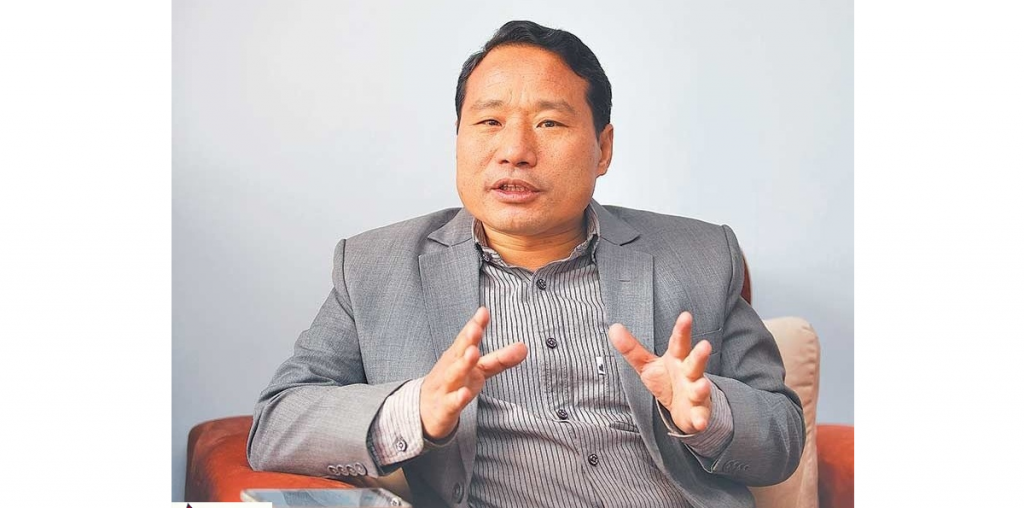 The Nepal Weekly
The Nepal Weekly  April 23, 2024
April 23, 2024
Finance Minister Barshman Pun Ananta has said that the progress achieved in Nepal’s hydropower is important for the promotion of clean and renewable energy in the South Asian region.
Minister Pun, was in the US to participate in the joint spring session of meeting of the World Bank and the International Monetary Fund to address the session titled ‘Renewable Energy Transition in Asia’ held in Washington DC and said that Nepal’s electricity consumption is not only domestic but also can be shared to the neighbouring countries. So as it is exported to India and Bangladesh. He said that Nepal is putting efforts to fully utilise the potential of hydropower, and Solar energy as well.
This will be important in the promotion and expansion of energy, Minister Pun said. ‘Because the generated electricity will be used not only in Nepal but also in neighbouring countries where energy demand is high such as India and Bangladesh. He added that during Prime Minister Pushpa Kamal Dahal Prachanda’s visit to India a few months ago, an agreement was signed that India will take 10,000 megawatts of electricity in the next 10 years. A trade agreement with Bangladesh was also signed that the later will take 40 megawatt electricity from Nepal. Thus, Nepal has been recognized as a source of clean and important green energy for the South Asia region. However, Minister Pun said that there is an extensive need for investment in the energy sector to fully utilise the potential of hydropower generation.
“Large size investment in transmission and distribution infrastructure including international transmission lines is necessary”, Minister Pun had said adding “since our internal resources are not enough for that, we appeal international investors to invest in Nepal’s hydropower.”
Minister Pun mentioned that the government is planning to open the way for the private sector in the construction of the transmission line project. He informed that this provision has been included in the new Electricity Act which is in the process. He said that Nepal is aiming to produce 28,500 megawatts of electricity by the year 2035, of which 15,000 megawatts will be exported to the regional market.
The Finance Minister said that Nepal is emphasizing green economy and is encouraging the private sector for that. He elaborated that there has been a significant reduction in the import duty of materials required for the construction of hydropower projects. Likewise, taxes on electric vehicles has been reduced, subsidies have been provided for Solar panels and the policy of subsidies to mini hydropower projects is formulated. He also said that the government has adopted a policy to increase domestic consumption.
According to him, the energy consumption of Nepal is less than other countries of South Asia like India, Bangladesh, Pakistan, Sri Lanka and Bhutan.
He said that PPA of 9,500 megawatts has been completed so far and another 10,000 megawatts is in the process. A total of installed capacity of hydropower plants in Nepal has reached 3,154 megawatts. Out of which, 662 MW was produced by the Nepal Electricity Authority (NEA), 493 MW by the subsidiary companies of NEA. Private entrepreneurs associated to Independent Power Producers Association Nepal (IPPAN) are generating around 2,000 MW, he explained.
Pacific Region President Manuela V. Ferro, World Bank Vice President for South Asia Martin Reiser, Indonesia’s Minister of Infrastructure, Transport and Maritime Affairs and Investment Racmat Kaimuddin, Asian Development Bank Vice President for Southeast Asia and the Pacific Scott Morris were among the participants in the meeting.






